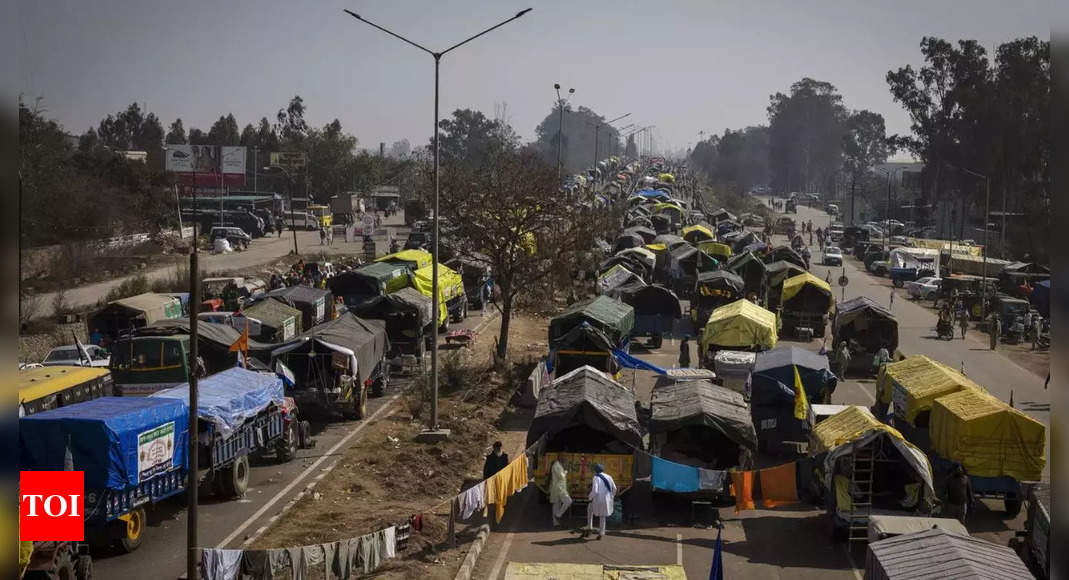The stand taken by farmers’ union to oppose the government’s proposal for procurement of pulses, maize, and cotton has come as a surprise. Initially, it was the leaders who had suggested incentivising the purchase of these produce by government agencies. The government had proposed this plan due to the adverse impact of paddy cultivation on the water table, which is now alarmingly low.
During meetings, the Punjab government highlighted the falling water table as a result of excessive water consumption in paddy cultivation. It was realized that this situation was unsustainable in the long run, as it led to increased power consumption and burdened the state. The neighboring state of Haryana is also facing a similar crisis.
The representatives of the farmers expressed their views that limiting the procurement to paddy and wheat hinders the diversification of production in Punjab and Haryana. Moreover, due to the lack of procurement of pulses, there is a growing demand for imports, instead of utilizing domestic farmers to meet the requirement. The absence of assured procurement of cotton has also affected the ecosystem.
To address the grievances of the farmers, the government proposed a five-year assured purchase plan for three major pulses (masur, arhar, urad), maize, and cotton. This plan aimed to increase their income as maize has a short production cycle, allowing farmers to benefit from the proposed assured price scheme multiple times a year.
Considering the enormous fiscal impact, a law guaranteeing procurement through the C2 formula was deemed unfeasible. As an alternative, the food ministry involved cooperatives like the National Cooperative Consumers Federation (NCCF) and Nafed to implement the proposed scheme. This was seen as a way to initiate the diversification process while negotiations continue on other issues.
However, in a surprising turn of events, some farm unions raised objections to the proposal, indicating a change in their stance. It is believed that these unions came under pressure from leaders of the Samyukta Kisan Morcha (SKM), an umbrella body of farm unions that led a prolonged agitation in 2020-21. This sudden opposition came as a surprise to the government, as they had received positive indications from the Punjab unions involved in the talks.
The unexpected opposition from some farmer representatives has created a new challenge for the government. Further discussions and deliberations will be required to address the concerns raised and find a mutually agreeable solution for procurement of pulses, maize, and cotton.











